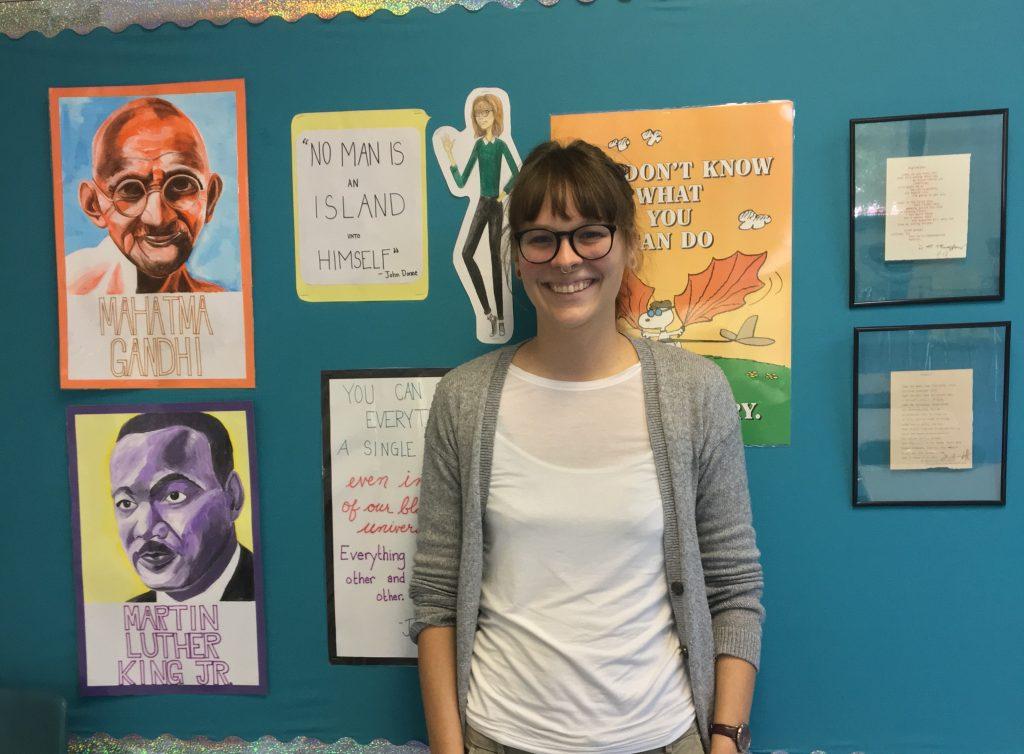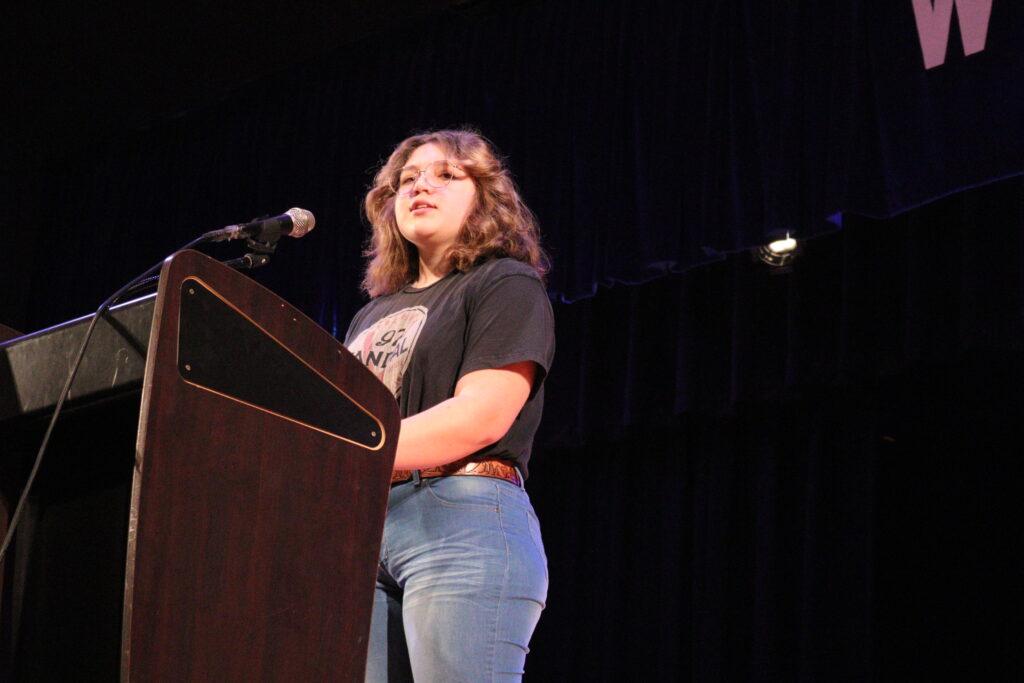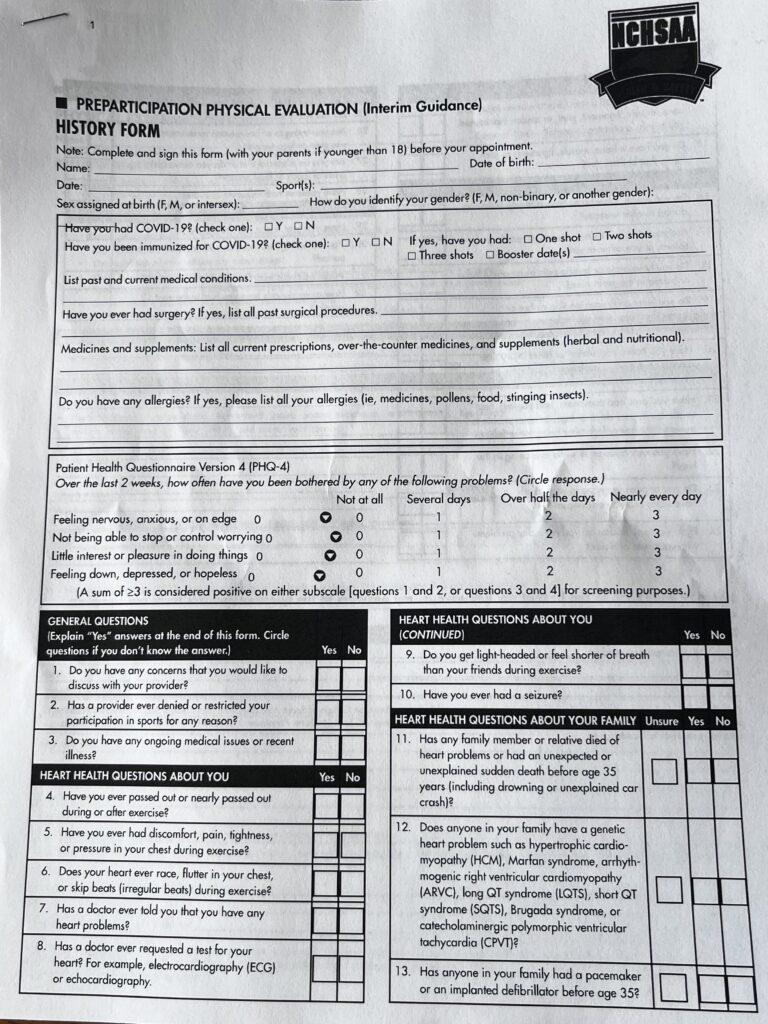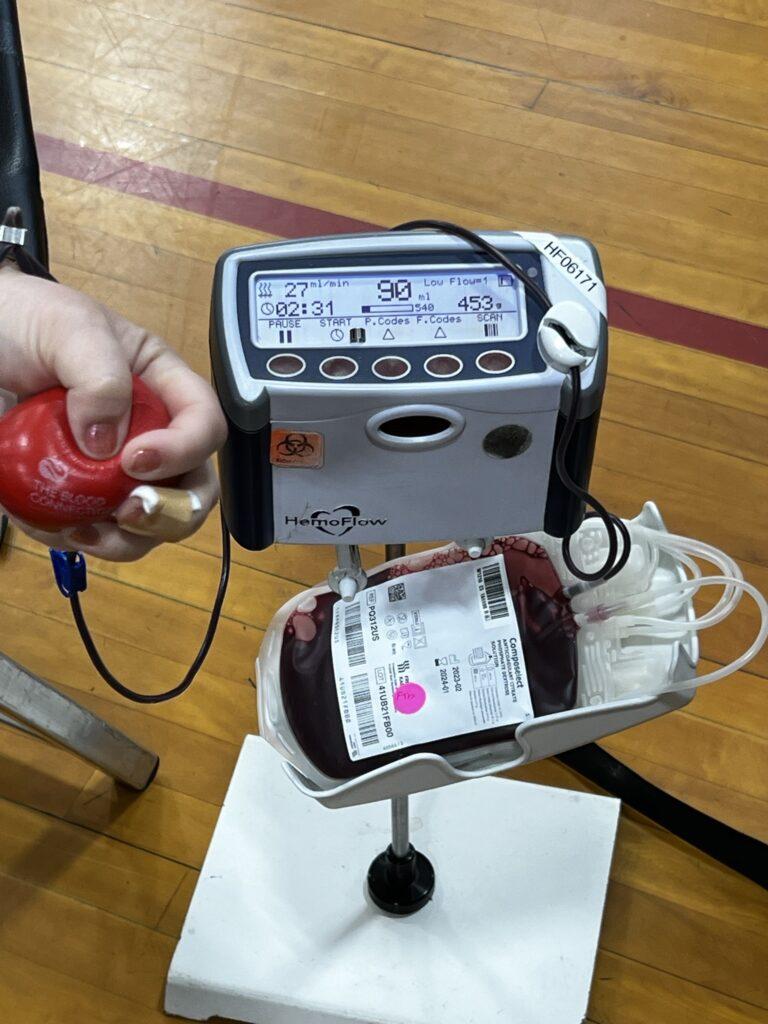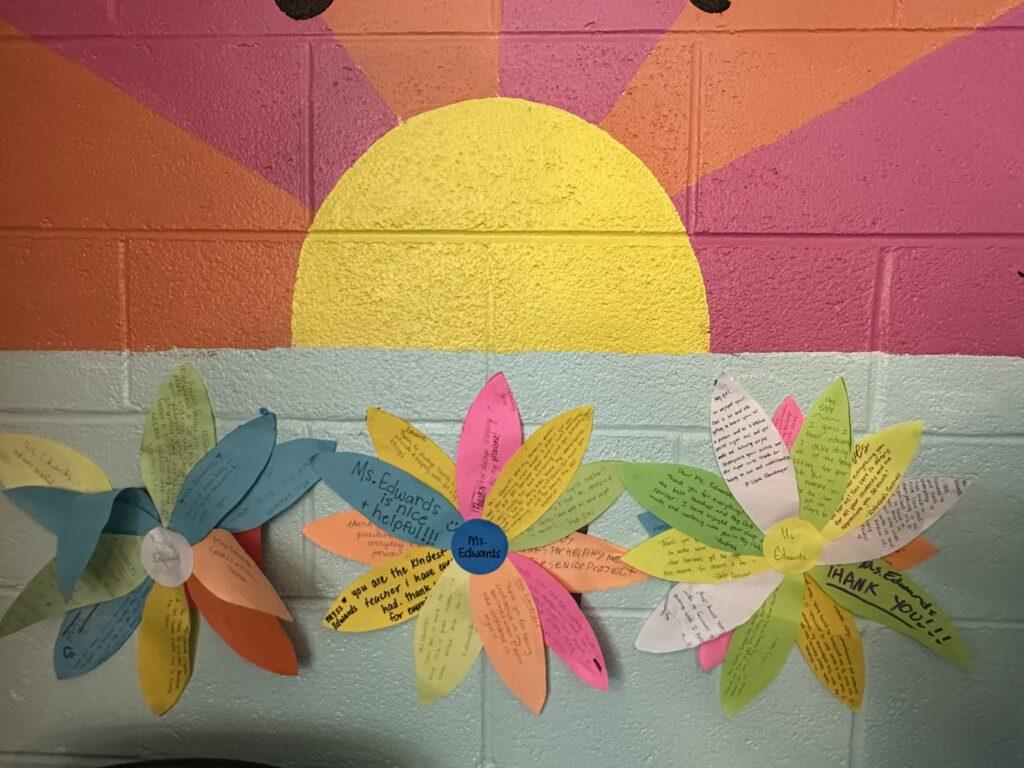When walking into Amy Mildebrath’s classroom, nothing seems to be out of the ordinary. There are a handful of desks scattered across the room, a podium from which she can present her daily lessons, and some motivational posters decorating the white cinder block walls. Upon closer inspection, her own paintings and caricatures are proudly displayed on the corner of one of her bulletin boards, showcasing one of her other passions.
Mildebrath said she not only enjoys teaching English, but she also likes to paint, read and write in her spare time. She said that English is a worldwide connection, and the connectivity is a strong focus in her class.
“Everyone is connected to everything in the world. That’s why we need English, and that’s why we need to understand language, because language is the way for us to realize those connections,” Mildebrath said. “Not only does that mean you matter, it means your actions matter. And other people around you matter as well. [English] creates a much more compassionate world.”
She said her inspiration for teaching came in one of her high school classes.
“I walked out of my ninth grade English class, and thought to myself, ‘I could do that.’ I still remember doing this,” Mildebrath said. “That was literally it. After that, I’m like, ‘Yeah, I’m going to be a teacher,’ and I went to college for it, and now I’m doing it.”
Mildebrath’s motivations for teaching at West stem equally from the students and her own preferences.
“I wanted to teach in a school in a small community, but not a school that had 42 people in it,” Mildebrath said. “This is about the same size as my old school, but it is very different. [At my old school, the focus was] much more about being nice to the kids, supporting the kids, being like, ‘You can do this,’ more so than, ‘Here is a lot of information.’ I wanted to work at a school with more opportunity to explore ideas.”
According to Mildebrath, one of her favorite moments as a teacher happened in her second year of teaching, and she still thinks of it as motivation when she gets frustrated.
“I had a kid in my first year of teaching, and he came into my room in my second year of teaching and announced to the class, ‘I hated writing and Ms. Mildebrath made me write all the time, and I love writing now. You’ve got to write. I love writing so much, and I hated it before,'” Mildebrath said. “And I’m like, ‘Thanks, go to class. I don’t know why you’re here, but that was great.’ That was really cool to hear a kid be like, ‘No, I hated this, but [Ms. Mildebrath] made me like it.’”
By: Elise Trexler, Web Editor-in-Chief

